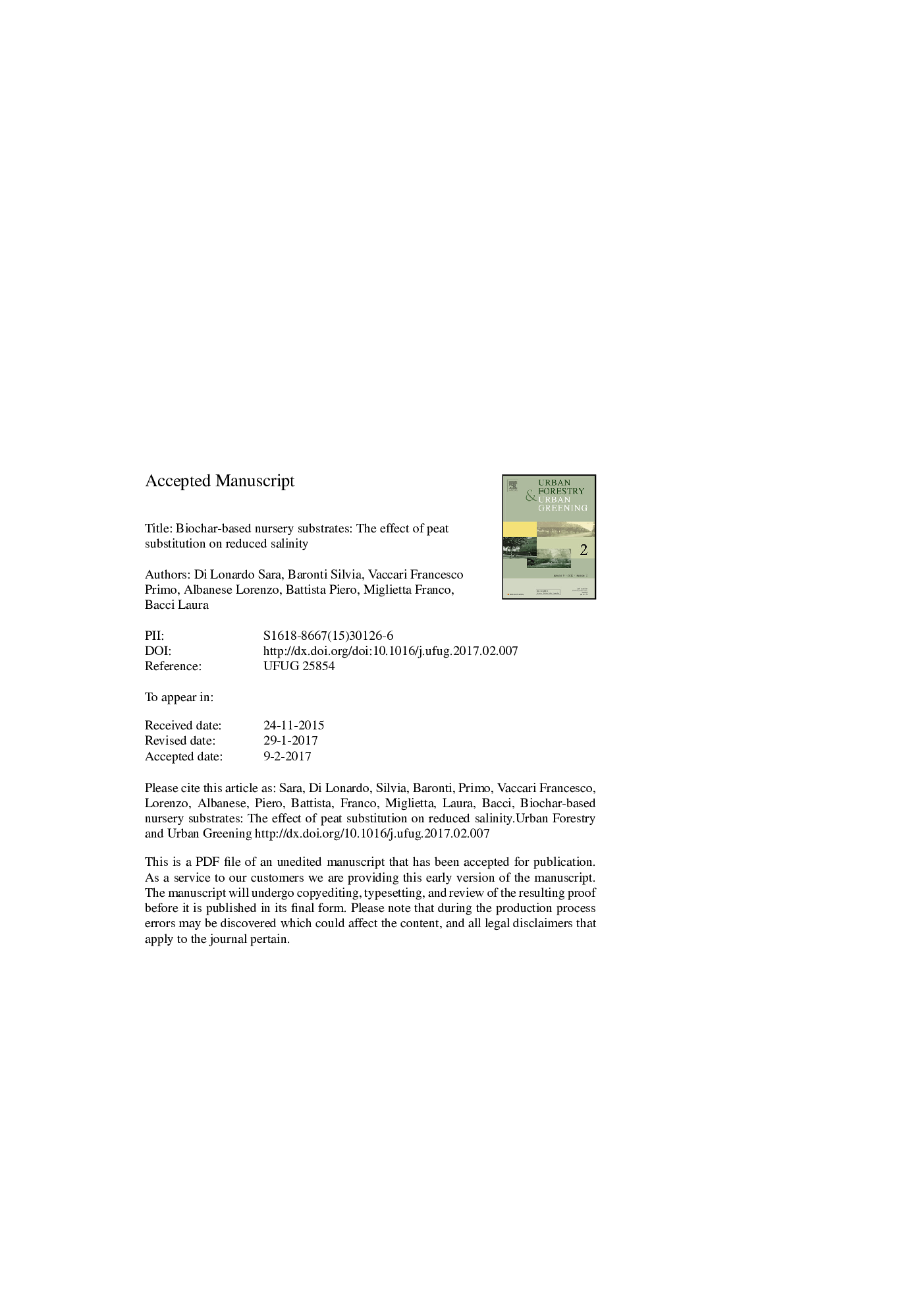| Article ID | Journal | Published Year | Pages | File Type |
|---|---|---|---|---|
| 4759993 | Urban Forestry & Urban Greening | 2017 | 33 Pages |
Abstract
Here, an experiment has been carried out with two ornamental plant species - cherry laurel [Prunus laurocerasus L.] which is salinity-sensitive, and phillyrea [Phillyrea latifolia L.] which is salinity-resistant - using substrates containing different amounts of biochar in place of peat. Moreover, using irrigation water at two different salinity concentrations, we assess the extent to which the biochar can mitigate salinity damage in these plant species. The results of this study showed that the addition of biochar to the potting medium had no effect on plant growth but crucially limited cherry laurel salinity damage. Tolerance to salinity was attributed to lower Na+ retention in the biochar-containing substrates. Based on these findings, we conclude that the application of biochar not only reduces the amount of peat required in growth substrates, but can also permit the utilization of low-quality irrigation water - thereby also reducing the leaching of nutrients such as K+ and N-NH4+.
Keywords
Related Topics
Life Sciences
Agricultural and Biological Sciences
Forestry
Authors
Sara Di Lonardo, Silvia Baronti, Francesco Primo Vaccari, Lorenzo Albanese, Piero Battista, Franco Miglietta, Laura Bacci,
